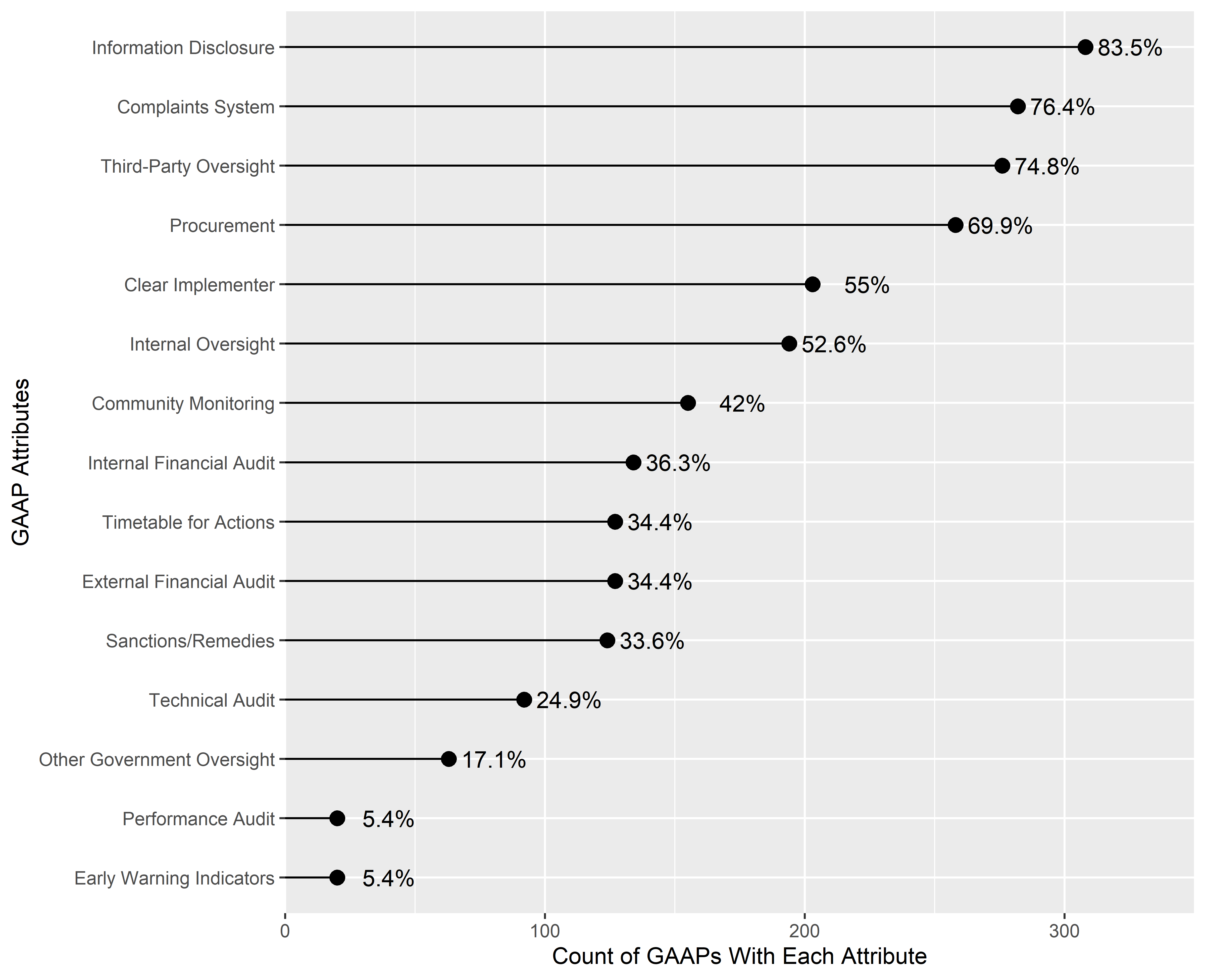Aid, Institutions, and the Potential of Anti-Corruption
Presented at the Midwest Political Science Association (MPSA) conference.
Does anti-corruption improve aid effectiveness? I use insights from principal-agent theory, incomplete contracting, and historical institutionalism to argue that context-specific anti-corruption measures improve aid effectiveness. First, anti-corruption measures generally target institutional constraints, which a large literature suggests are the primary cause of development outcomes. Second, during the critical juncture period in the late 1990s, legitimacy challenges from civil society spurred aid agencies to create large anti-corruption infrastructures. Context-specific anti-corruption design measures thus have both the power and specificity to meaningfully contribute to aid effectiveness. To test the hypothesis, I individually coded all 4,303 World Bank investment projects approved from 2001-2018 for their use of context-specific, project-level Governance and Anti-Corruption Action Plans (GAAPs). Using frontier matching for causal inference, I find that projects with GAAPs have better outcomes than similar projects without GAAPs. The results suggest that top-down monitoring remains a useful foil against corruption, and bureaucrats have agency to mitigate the institutional and structural constraints to development. [Draft Paper]

